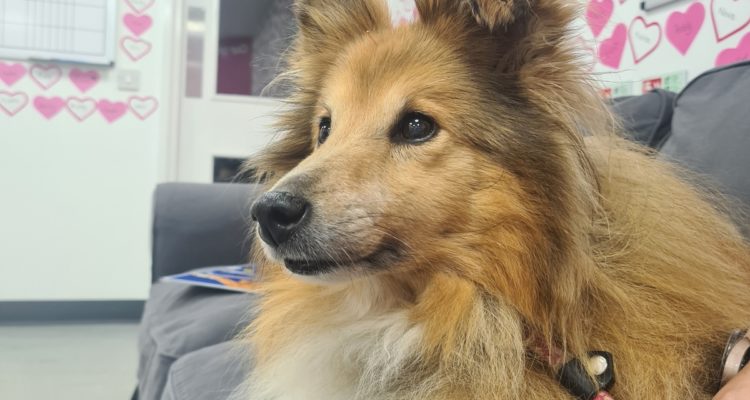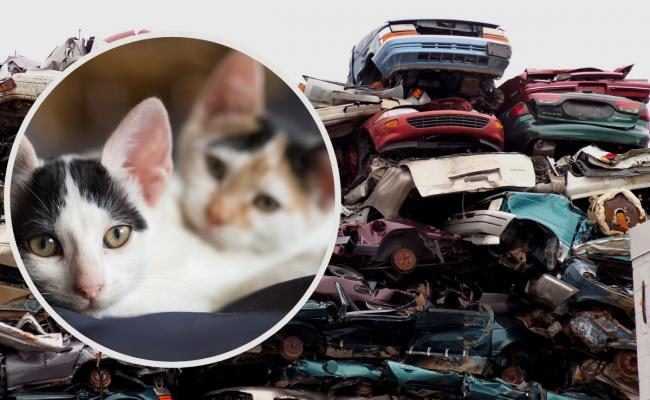Harrison Family Vets in Woodley has become the first in Reading to offer a traditional…
Keeping pets safe this bonfire
 Many pets have more acute hearing than humans, so the loud bangs and whistles – which at 150 decibels can be as loud as the noise from a jet engine – can cause significant distress and fear and lead to the development of phobia responses. We see first-hand the impact of firework-related distress in pets at this time of the year.
Many pets have more acute hearing than humans, so the loud bangs and whistles – which at 150 decibels can be as loud as the noise from a jet engine – can cause significant distress and fear and lead to the development of phobia responses. We see first-hand the impact of firework-related distress in pets at this time of the year.
By far the most commonly reported cases were self-injuries caused by fireworks-related anxiety, such as tooth injuries to dogs from chewing furniture. The negative impact isn’t restricted to noise levels – the debris and remnants of fireworks and paper lanterns in fields and surrounding countryside can also pose a serious risk of injury to pets.
The loud noises and bright flashes from fireworks can be extremely traumatic for pets, from dogs, cats and rabbits to livestock, horses, wildlife and zoo animals. We’d encourage pet owners to consult us as far in advance as possible to discuss management and treatment options, which may include noise desensitisation techniques, applying pheromone products around the house, and preparing a ‘safe place’ for pets. With professional input and owner commitment and patience, a phobia of fireworks can be effectively treated with appropriate behaviour-modification techniques. In more severe cases, we may also prescribe medications to help pets struggling with fireworks distress.
Even if you don’t expect your pet to be anxious please consider staying close at hand on the noisiest evenings, providing background noise when fireworks are going off and, most importantly, staying calm yourself so your animal is reassured.
Signs of fireworks-related distress can vary from pet to pet. While some pets show obvious signs of fireworks-related anxiety, such as barking, panting, drooling and attempts to escape, there are also more subtle signs that owners should be aware of, including restlessness. Cats often hide, while rabbits may keep very still and thump the ground with their back feet.
These are the top tips to keep your pet safe this Bonfire Night:
-
If your pet gets distressed by fireworks or other noises, contact us to discuss treatment options. This may include drugs to help dogs with noise phobias or pheromone products to apply next to your pets’ den and around the house to keep them calm.
-
Create a well-padded den for your pet to access ahead of fireworks season so they have a safe place to hide when fireworks start.
-
Ensure your pet is microchipped and your details are up to date on the database, in case it runs away from home.
-
Move small pets such as rabbits and guinea pigs to a quiet place indoors.
-
Close windows and curtains and provide background noise to help mask the fireworks.
-
If your pet is distressed, remain calm yourself – trying to reassure your pet can inadvertently reinforce anxious behaviour. Restlessness or toileting in the house can be signs of stress, so don’t punish them.
-
Keep livestock housed at times when fireworks are likely to be set off locally and remove any firework debris from grazing pasture before letting them out.
-
Horses may be better turned out in a field than stabled, as in a stable they may feel enclosed and unable to move. Owners should consult a qualified equine behaviourist if they have significant concerns about their horse’s response to fireworks.
-
If you’re hosting a fireworks display, avoid setting them off near horses, livestock or companion animals. Dispose of any debris and remnants of fireworks responsibly.
-
Before lighting a bonfire, remember to check for any wild animals that may be hiding in it.



